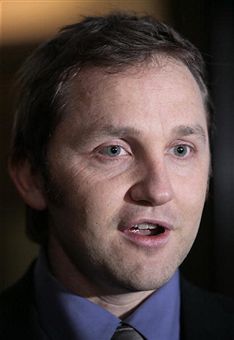 James Purnell envisages a society of ‘empowered’ voters left to make decisions for themselves. It is an attractive concept – individual responsibility displacing state directives will save money and, providing those running the institutions are competent, improve public services. Writing in the Times, Purnell acknowledges that these concepts can become lost in the abstract terms in which they are expressed. What a pity he didn’t take his own advice – his article is an extended abstract noun.
James Purnell envisages a society of ‘empowered’ voters left to make decisions for themselves. It is an attractive concept – individual responsibility displacing state directives will save money and, providing those running the institutions are competent, improve public services. Writing in the Times, Purnell acknowledges that these concepts can become lost in the abstract terms in which they are expressed. What a pity he didn’t take his own advice – his article is an extended abstract noun.
Not that it’s all bad. What power is there for parents who can’t afford to move close to a good school, he asks. His answer is broadly similar in tone and substance to Michael Gove’s schools agenda:
‘Real power would mean abolishing catchment areas and having pupils apply two or three years in advance. Oversubscribed schools could then expand, or new providers start up. Conversely, undersubscribed schools could be closed or taken over. Parents could be guaranteed one of their top choices.’
Aside from that it’s very difficult to decipher what Purnell stands for, and what there is is couched in Labour’s ‘top down’ language. He favours reforming the voting system to ensure that a vote is never wasted, but he ignores the tricky bit: detailing precisely which alternative he prefers. He assures jobseekers that they will find work within a year, but neglects to mention how this could be achieved through mutualism. There is something consciously old-fashioned about Purnell and he seeks to restore ‘usury laws so no one need fall victim to loan sharks’. An excellent idea enacted by Parliament, not, for example, by a residents’ association.
The article is revealing in what it omits. There is no mention of the NHS or the public sector, two amorphous institutions that would benefit from a little bureaucratic liposuction. George Osborne’s speech concentrated on them. The omission is telling and Purnell explains it unintentionally:
‘Labour took its statist turn in 1945 — we were victims of our success.’
Empowering the people requires the diminishment of the State. Purnell recognises that obvious paradigm but is trapped in an ideological mindset that refuses to contemplate such action. In comparison to Conservative ideas on co-operatives, Purnell is someway behind.






Comments